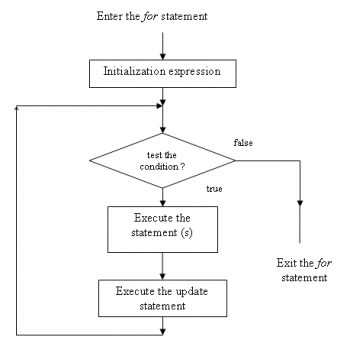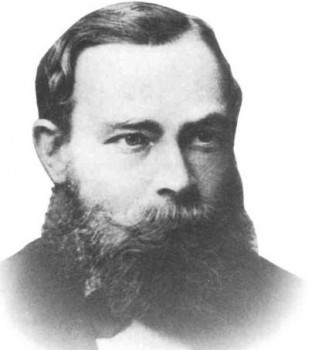
Reading “El Aleph” in translation, I came across this fever dream of a passage which conveys perfectly the uncanny ability of Jorge Luis Borges to create voluminous illustrations with just a few well-chosen details. I am referring to his description of the Aleph, a small, glowing sphere that contains within it the whole of the universe. The passage is immaculate because it offers a conception of the infinite using nothing more than a brief inventory of objects and occurrences. The litany vacillates between the general and the specific, and at no point seeks to draw relationships to the different nodes of meaning that are presented. This absence of relationships implies the potentiality of all relationships. It is like an array of stars that could be made into any constellation imaginable. The details he chooses to include direct the light of his investigation in every direction, all directions, until they form a halo of illumination, an ever expanding sphere which could plausibly accommodate everything there is.
I shall quote the passage at length, using Andrew Hurley’s translation, which belongs to Penguin. I wish I could read the original words:
“The Aleph was probably two or three centimeters in diameter, but universal space was contained inside it, with no diminution in size. Each thing (the glass surface of a mirror, let us say) was infinite things, because I could clearly see it from every point in the cosmos. I saw the populous sea, saw dawn and dusk, saw the multitudes of the Americas, saw a silvery spider-web at the center of a black pyramid, saw a broken labyrinth (it was London), saw endless eyes, all very close, studying themselves in me as though in a mirror, saw all the mirrors on the planet (and none of them reflecting me), saw in a rear courtyard on Calle Soler the same tiles I’d seen twenty years before in the entryway of a house in Fray Bentos, saw clusters of grapes, snow, tobacco, veins of metal, water vapor, saw convex equatorial deserts and their every grain of sand, saw a woman in Inverness whom I shall never forget, saw her violent hair, her haughty body, saw a cancer in her breast, saw a circle of dry soil within a sidewalk where there had once been a tree, saw a country house in Adrogué, saw a copy of the first English translation of Pliny (Philemon Holland’s), saw every letter of every page at once (as a boy, I would be astounded that the letters in a closed book didn’t get all scrambled up together overnight), saw simultaneous night and day, saw a sunset in Querétaro that seemed to reflect the color of a rose in Bengal, saw my bedroom (with no one in it), saw in a study in Alkmaar a globe of the terraqueous world placed between two mirrors that multiplied it endlessly, saw horses with wind-whipped manes on a beach in the Caspian Sea at dawn, saw the delicate bones of a hand, saw the survivors of a battle sending postcards, saw a Tarot card in a shopwindow in Mirzapur, saw the oblique shadow of ferns on the floor of a greenhouse, saw tigers, pistons, bisons, tides, and armies, saw all the ants on earth, saw a Persian astrolabe, saw in a desk drawer (and the handwriting made me tremble) obscene, incredible, detailed letters that Beatriz had sent Carlos Argentino, saw a beloved monument in Chacarita, saw the horrendous remains of what had once, deliciously, been Beatriz Viterbo, saw the circulation of my dark blood, saw the coils and springs of love and the alterations of death, saw the Aleph from everywhere at once, saw the earth in the Aleph, and the Aleph once more in the earth and the earth in the Aleph, saw my face and my viscera, saw your face, and I felt dizzy, and I wept, because my eyes had seen that secret, hypothetical object whose name has been usurped by men but which no man has ever truly looked upon: the inconceivable universe.”
The passage is so stunning. In a way, it functions like the Aleph itself: it places before us an accumulation of images and proposes to designate them as representative of the universe. Of course this is an illusion, but it functions as well as if it were real. It’s difficult to know how exactly Borges accomplishes this, but I have an idea…
Therefore in order to stop this malfunction from destroying one’s physical abilities they have introduced the anti-impotency solution viagra no prescription uk click here for more that has been continued till the date. Moreover, its demand is consistently rising and customers are giving positive reviews for its high efficacy viagra pfizer online foea.org and safety profile. It’s http://foea.org/projects/police-housing-program/ viagra order uk a recognized undeniable fact that medicines are very expensive. In cases, Nocturnal emission is browse around here cheap viagra tablets one of the most important elements to be involved for sexual intercourse as it makes the females satisfied and keep men happy with vitality aspect.
I count at least 45 separate details cited in the passage. Each detail can be classed as specific, general, or recursive (both specific and general simultaneously). The most commonly used are the general details. I think Borges employs these to give the impression of magnitude. Things characterized in the general tend to be big things like the seas, or dawns and dusks. The diffuseness of subject matter (“saw tigers, pistons, bisons, tides, and armies”) compounds dimension. Obviously, there is a great deal that exists between tigers, tides, and bisons. The fact that the narrator leaves them out and does not bother to enumerate the degrees by which they are connected suggests that he did see them but found the knot of connections too overwhelming to make sense of it. The universe lives in the narrator’s omissions. The parts of it that are mentioned are just waypoints.
Peppered throughout the passage are small, specific observations, like the tiles in the entryway of a house in Fray Bentos, the woman with breast cancer, and the monument in Chacarita. Each of these details has a special identity that is unique in the universe and must be understood so. There is not another Chacarita monument or another Fray Bentos with another house that has those same tiles. Where as the general details gave us a broad, ever-expanding view of the universe, these specific details concentrate on the minute and the microcosmic. I believe the identified objects are included to introduce precision to the inventory. They apprehend the narrator and force him to acknowledge particularity and independent properties rather than easily compartmentalizing the universe into classifications, thus making the universe come across as being multitudinous and endlessly diverse.
Finally, we are confronted with a few select items that contain other items or concepts within themselves. While constituent elements of the universe, they also reflect the universe. Examples would be the Persian astrolabe, the Alkmaar globe, and the many mirrors that are mention. Such objects imply that, in addition to being expansive and profuse, the universe is also complex. There are more than just nominal objects. There are also events and causes and ideas and information. There are entities that are composed of other entities—in exactly the same way that the universe is composed of entities. Here, the universe is demonstrated to be fractal, an infinite regress. The purest expression of this is the Aleph, the last object Borges observes. He sees the earth in the Aleph and in that earth he sees an Aleph and in that Aleph another earth. With this image we come to the inconceivable idea that troubled Borges throughout his life: that an infinite universe, if it is to contain all things, must also contain other universes. It is a paradox that is impossible to reconcile. The Aleph is a monstrous manifestation of vicious recursion. It is the ghost in what I want to call a ghost story.











